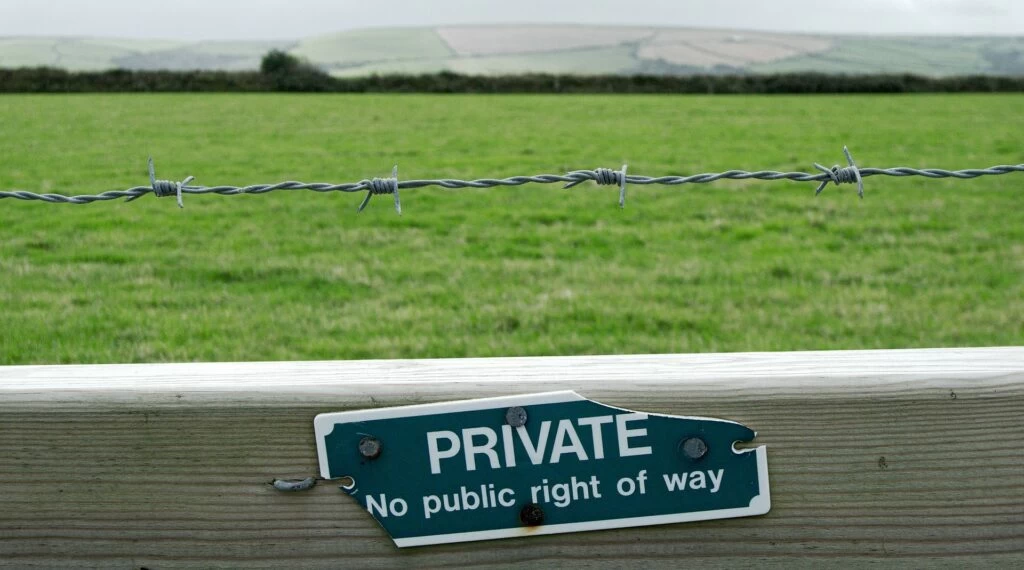
Dealing With a Boundary Dispute
Boundary disputes involve issues that occur between two or more property owners occupying neighboring properties. In some cases, boundary disputes can arise when an owner builds a fence, a building or a wall.
Understanding the Extent of the Boundary Issue
Before accusing a neighbor of encroaching on or over one’s property line, make sure to have an understanding on the details of how the land has been encroached, whether permission was given to the offending party to use the property, and determine how long the encroachment has been ongoing. This information can be found by ordering a land survey, a full title search, and an appraisal. The types of surveys that are used for evidencing property boundary lines are as follows.
Boundary Survey
Considered to be the best type of survey for inspecting property boundary lines, construction and permits. Boundary survey involves both field & records research. Computation measurements required to set the boundary lines as per the applicable laws are also a go-to method for boundary surveys. It may also involve researching easement lines and encroachment.
Location Survey
Similar to a boundary survey, a location survey will show additional information about the location of the improvements to your property in relation to the boundary lines. This is mostly used for zoning permits or mortgage loan applications.
Metes and Bounds Survey
Probably the oldest method used for surveying land, a metes and bounds survey measures the distance between two points measured in a straight line. “Bounds” don’t have a specific definition; it can be a rock, wall, building or any other impermanent object. This method instructs surveyors to start at a specific point, an intersection of a stream, road or a more nebulous point. From there surveyors follow a compass needle for the required feet to a physical marker to measure a subject property.
The Appraisal
An appraisal is a professional opinion as to the value of a property. It is an analysis performed by a licensed professional appraiser. Licensed appraisers can provide a legal valuation for a contested property and determine the extent of the monetary impact (damages) an alleged encroachment may have on a subject property. This figure will be important in the event the parties to a boundary dispute, go to court.
Title Work
A title abstractor works to ensure that a parcel has clear or marketable title. They search county records and conveyance documentation that pertains to a specific property. They are essentially recreating the conveyance history and searching public records to find any problems with the marketability of title. Among other things, they look at former deeds, mortgages, liens, easements, leases, options, tax, and parcel splits. These documents can be instrumental in understanding the extent of a property’s line or boundary.
Involve a Real Estate Attorney at the Onset of a Dispute
Even before a property owner secures a survey, an appraisal or title work, it is best to consult with an experienced real estate attorney who regularly handles boundary dispute matters. With the above named supporting documentation, if the matter cannot be resolved amicably, a boundary line dispute will require litigation. Often, a resolution between the disputing parties could allow for a monetary settlement, an agreement to divide the land, or for an easement.
If no resolution can be reached, then only a lawsuit can resolve a boundary dispute.
Provide Supporting Document
Generally, the legal process can take anywhere from 90 days to 180 days to complete depending on how involved the fact pattern of a case is, but the stronger the supporting documentation found in the appraisal, the survey and the title, the higher the propensity to succeed before a case is even brought.
Conclusion
Regarding boundary line disputes, the exchange between owners of neighboring properties can become heated. There is quite a bit of emotion that gets tied up with these disputes and it makes it even more difficult to resolve the matter before it escalates further.
It’s best to consult with a real estate attorney at the onset of learning about a problematic encroachment so that the matter does not unnecessarily escalate into a lawsuit in the first place.
If you liked what you read, check out our related YouTube videos

